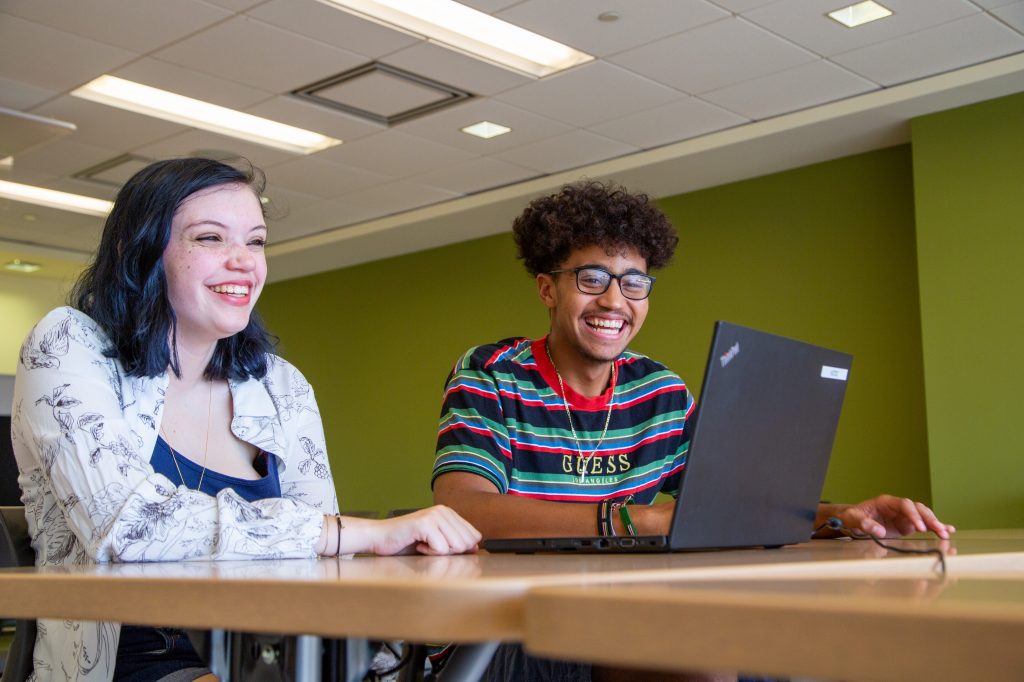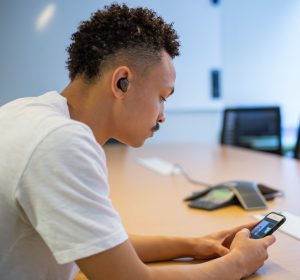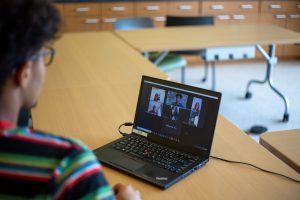-
What We Do
- WHERE WE WORK
-
About Us
 Welcome Message from Carol Jenkins
Welcome Message from Carol JenkinsFor more than 90 years, World Learning has equipped individuals and institutions to address the world’s most pressing problems. We believe that, working together with our partners, we can change this world for the better.
On my travels, I’ve had the opportunity to meet with many of those who have joined us in this mission. In Baghdad, we’ve trained more than 2,300 Iraqi youth who are already giving back at home. In London, our partners in the TAAP Initiative strongly believe that we are all responsible to practice inclusion. And in Vermont, our Experiment in International Living and School for International Training participants prove every day that they have the tools and the determination to change the world.
Please join us in our pursuit of a more peaceful and just world.
- Get Involved
Media Center > Story
Celebrating the Importance of Virtual Exchanges on National STEM Day
November 8, 2019

By World Learning Program Associate Katya Murillo and Intern Taieb Cherif
Climate change, food security and sanitation, healthcare, and gender equality are just a few of the many grand challenges countries across the globe face today, and in an increasingly global world we recognize that we must work together to solve them creatively. But how?
On this National STEM Day, World Learning recognizes the power of STEM education as a driving force of change. In Syria, Ethiopia, and Algeria among others, our STEM programs have transformed the lives of young people by exposing them to new career opportunities and experiences. Last month, World Learning launched a new program that will continue to use STEM education as a driving force of change: The NextGen Coders Network (NGCN).

This virtual exchange program will bring together university students and young professionals from Iraq, the Palestinian Territories, and the United States through “hackathons.” From the comfort of their own homes, local libraries, or university campuses, participants will use coding skills to design solutions to their countries’ grand challenges. This format fosters greater cultural understanding between U.S. and international participants as they work both individually and in groups and collaborate across borders and professional backgrounds. At the end of each of the program’s four cycles, participants will have an opportunity to showcase their prototypes in a virtual “Ideas Festival.” NGCN is funded by the Stevens Initiative, which is sponsored by the U.S. Department of State, with funding from the U.S. government, and administered by the Aspen Institute.
Through NGCN, World Learning aims to highlight the importance of STEM education in finding innovative solutions to our world’s complex problems. The NGCN curriculum spans over 10 weeks and introduces participants to coding languages and concepts like project management and design thinking. It comprises 15 modules that cater to the different needs of participants, while developing and strengthening hard skills that will give participants the confidence to thrive in a technological age. This curriculum allows students to not only gain knowledge in STEM areas, but to think critically and resourcefully about the change they can create in the world.
World Learning knows the world’s grand challenges require diverse perspectives and backgrounds to work together and learn from each other’s successes and failures. It might even be that a solution already exists, and the next challenge is figuring out how to scale the solutions for all to benefit. That is why NGCN emphasizes the multidisciplinary nature of the virtual exchange, bringing together an international cohort of students and young professionals who do not exclusively come from a computer science background, as the name of the program might suggest. Thus, participants can benefit from the multiplicity of perspectives and areas of expertise.

Solving global issues necessitates a deep intercultural understanding among people across the world. With more than 86 years of experience running international exchange programs, World Learning, through NGCN, aims to promote virtual exchange as a way to create a generation of globally and culturally aware citizens. Such programs have the capacity to empower young people and give them a new window to the world at low economic and social costs.
Reflecting on what drew him to this program, Aryan Wadhwani, a participant from Indiana University, expressed that he is fascinated by the idea of a virtual exchange and sees in it as an opportunity to “learn about the experiences of people from different cultures” and “come up with ideas to solve real-world problems.”
World Learning looks forward to seeing how Aryan and his peers will go on to drive change in their communities, countries, and beyond.





